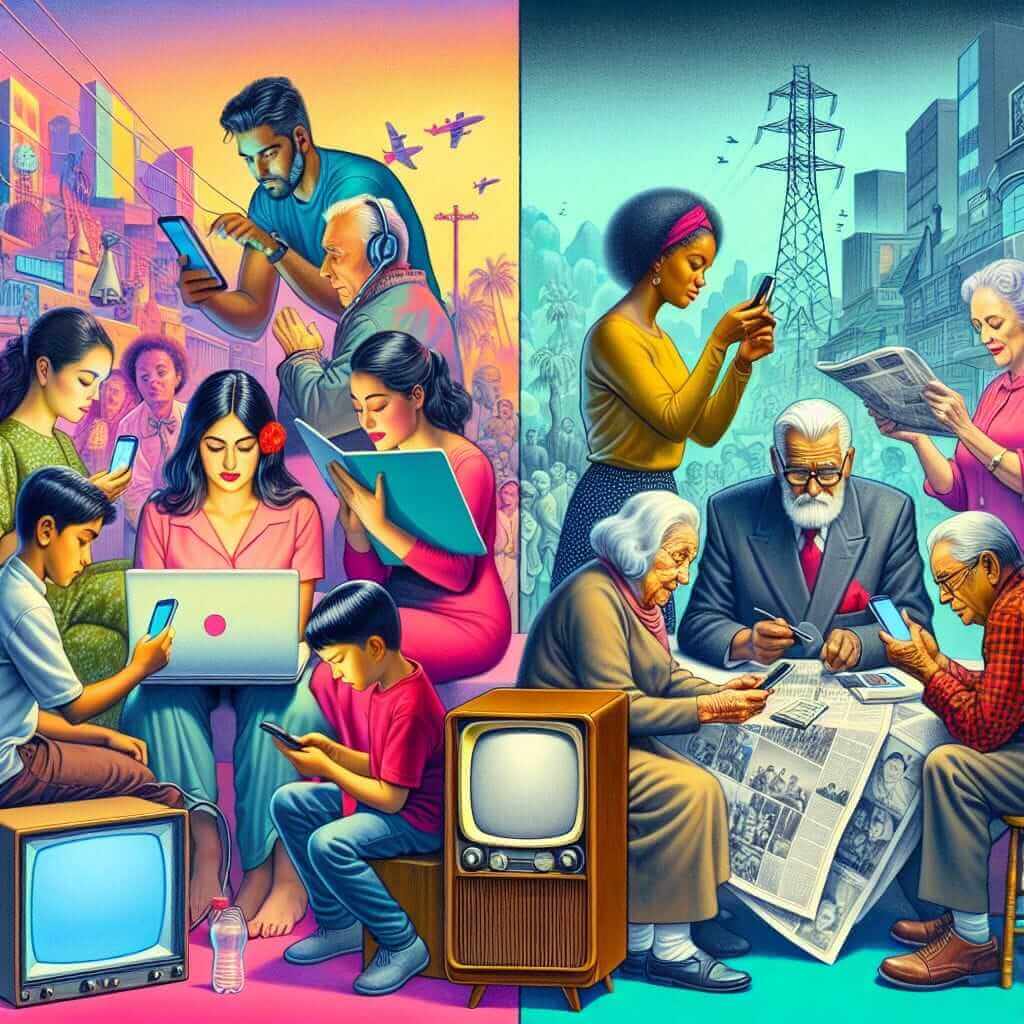The subject of “The role of technology in social justice” has increasingly appeared in IELTS Writing Task 2 over recent years. This trend reflects the growing awareness and relevance of technology’s influence on societal fairness and equality. Given the rapid development of technology and its pervasive role in daily life, this topic is expected to remain relevant in future IELTS exams. To aid IELTS candidates, we will explore previous IELTS exam questions, choosing one most reflective of this theme, and provide a complete, model essay.
Main Content
1. Selected Sample Question
In the context of the widespread impact of technology on social justice, a pertinent IELTS Writing Task 2 question that has been frequently observed or is likely to appear might be:
Some people believe that technology has helped to enhance social justice, while others think it has exacerbated social inequalities. Discuss both views and give your own opinion.
2. Task Analysis
This question requires a discussion of both perspectives regarding the impact of technology on social justice, followed by the author’s own viewpoint. It’s essential to objectively present arguments for both sides and conclude with a balanced opinion.
3. Model Answer
The role of technology in enhancing social justice is a widely debated topic. Some argue that technology has significantly contributed to improving social equality by providing widespread access to information and resources. Others, however, believe that it has exacerbated existing social inequalities. This essay will explore both perspectives before presenting a reasoned conclusion.
On the one hand, technology has undeniably played a pivotal role in promoting social justice. Firstly, the internet has democratized access to information. People from diverse backgrounds now have unprecedented access to educational resources, critical news, and civic engagement tools. Secondly, social media platforms have become powerful apparatus for social movements. For instance, the Black Lives Matter movement utilized social media to mobilize global support and highlight systemic injustices. Furthermore, technology has enabled the development of tools that aid disadvantaged communities, such as mobile banking services in rural areas, which facilitate financial inclusivity.

Conversely, it is also argued that technology has led to heightened social disparities. Firstly, there is a significant digital divide between different socio-economic groups. Not everybody has equal access to digital devices or high-speed internet, which can severely constrain opportunities for disadvantaged populations. Secondly, the concentration of proprietary technology in the hands of a few major corporations has exacerbated economic inequalities, as these companies accumulate vast amounts of wealth and influence. Lastly, technological surveillance methods have sometimes been misused, infringing on personal privacy and disproportionately targeting marginalized communities.
In my opinion, while technology has both positive and negative ramifications for social justice, its advantages slightly outweigh its disadvantages. The key lies in how technology is governed and implemented. With appropriate policies and equitable dissemination, technology can be a powerful equalizer. Governments and organizations should prioritize closing the digital divide and ensuring that technological benefits reach all strata of society.
In conclusion, while technology has the potential to both enhance and hinder social justice, its ultimate impact is contingent on responsible usage and equitable access. By focusing on inclusive tech policies, society can harness the potential of technology to foster greater social justice.
(Word count: 348)
4. Key Considerations When Writing the Essay
- Balanced Argumentation: Ensure that both viewpoints are discussed comprehensively.
- Clear Thesis Statement: Your opinion should be clear and well-supported.
- Coherent Structure: The essay should have a clear introduction, body paragraphs with logical arguments, and a conclusion.
- Lexical Resource: Use a range of vocabulary relevant to technology and social justice issues.
- Grammatical Range: Employ various sentence structures and complex grammar forms.
5. Difficult Vocabulary
- Democratize (v) /dɪˈmɒkrətaɪz/ – Make (something) accessible to everyone.
- Infringement (n) /ɪnˈfrɪndʒmənt/ – The action of breaking the terms of a law or agreement; violation.
- Pivotal (adj) /ˈpɪvətl/ – Of crucial importance in relation to the development or success of something else.
- Proprietary (adj) /prəˈpraɪətri/ – Relating to an owner or ownership.
- Mobilize (v) /ˈməʊbəlaɪz/ – Organize and encourage (a group of people) to take collective action in pursuit of a particular objective.
- Disparity (n) /dɪˈspærɪti/ – A great difference.
- Equitable (adj) /ˈekwɪtəbl/ – Fair and impartial.
- Inclusivity (n) /ˌɪnkluːˈsɪvɪti/ – The practice or policy of including people who might otherwise be excluded or marginalized.
- Civic (adj) /ˈsɪvɪk/ – Relating to a city or town, especially its administration; municipal.
- Dissemination (n) /dɪˈsɛmɪneɪʃən/ – The act of spreading something, especially information, widely.
Conclusion
The discussion about the role of technology in social justice is critically important in modern society. This essay has analyzed both positive and negative viewpoints and provided an essay template that can help IELTS candidates prepare efficiently. Future possible questions might include:
- To what extent does technology alleviate or worsen social inequality?
- Discuss the impact of emerging technologies on social justice.
By mastering these topics, candidates can improve their readiness for the IELTS Writing Task 2.